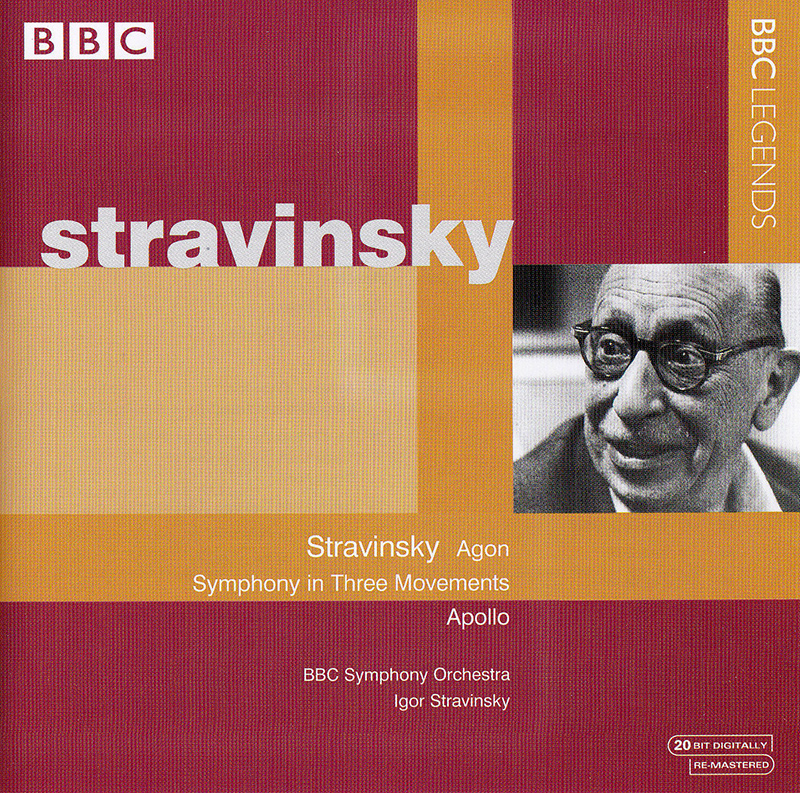Logowanie
Dziś nikt już tak genialnie nie jazzuje!
Bobby Hutcherson, Joe Sample
San Francisco
SHM-CD/SACD - NOWY FORMAT - DŻWIĘK TAK CZYSTY, JAK Z CZASU WIELKIEGO WYBUCHU!
Wayne Shorter, Freddie Hubbard, Herbie Hancock, Ron Carter, Elvin Jones
Speak no evil
UHQCD - dotknij Oryginału - MQA (Master Quality Authenticated)
Chesky! Niezmiennie perfekcyjny
Winylowy niezbędnik
ClearAudio
Double Matrix Professional - Sonic
najbardziej inteligentna i skuteczna pralka do płyt winylowych wszelkiego typu - całkowicie automatyczna
STRAVINSKY, BBC Symphony Orchestra, Igor Stravinsky
Agon / Symphony in Three Movements / Apollo / L’Oiseau de feu: Finale
The BBC archives presents us rather a milestone with this concert from 10 December 1958 at the Royal Festival Hall, London, with the composer–who had worried fretfully about the preparedness of the BBC for his tonal requirements–at the helm. The 1957 ballet Agon always proves problematic, its weird, aural combinations of serial technique and Renaissance dance-forms challenging players for entries, intonation, and metric clarity. While satisfying for dancers–it was commissioned by Lincoln Kirsten fro George Balanchine’s New York City Ballet–the score grates on the ears at several points, with its unadorned use of the tritone, rhythmic asymmetries, and jabbing, raucous, pummeling trumpet arrangements. At times, the imitation-mandolin sounds remind us of Song of the Nightingale or an even more drunken Pierrot Lunaire. The famous Pas de Deux for viola and assorted string accompaniments makes a perfect case in point, its askew melos and thumping bass parts never quite sitting on the ear with any wonted sense of grace. The audience, despite a good deal of coughing, seems appreciative enough at the end. The Symphony in Three Movements (1946) has a strident power that slices the air in neo-Classic symmetries, the piano obbligato particularly ripe in this energetic, brightly-colored reading. The muscular, jagged rhythms often suggest the ‘primitivisms’ of Le Sacre, but the musical means are economical and deft, laconically acerbic. No wonder one conductor characterized Stravinsky’s music as “roughage” for any orchestra’s digestive system! Scintillating playing from the BBC, diaphanous and sassy at once, keeps us beguiled and off balance, demanding more of the same. The Andante–Interlude makes use of themes Stravinsky had intended for Hollywood movie scores. The stately, gavotte rhythm with winds and harp communicates a world of aristocratic pleasures, Stravinsky the boulevardier. The middle section combines a sense of the mystic with the color panoply we know from Petrushka or from Copland. The last movement, Con moto, always proves the most effulgently brash of all, thumping and breathing heavily with passing riffs from Le Sacre cross-fertilized by more serial procedures in mock-motley. With Apollo, we have the quintessence of Stravinsky’s neo-Classic “white” style, especially when we have a Villella or a d’Ambroise to realize its physical presence. Stravinsky leads the 1947 string orchestra revision. The BBC renders each of the ten selections with devotional, warm accuracy, from Apollo’s birth to the golden Apotheosis. Only Mravinsky makes this wonderful score shiver, but with more starry frigidity. As an encore, Stravinsky tosses the familiar finale from The Firebird to an audience that cannot delight enough in the Old Master’s ministrations with this talented London ensemble. –Gary Lemco


































